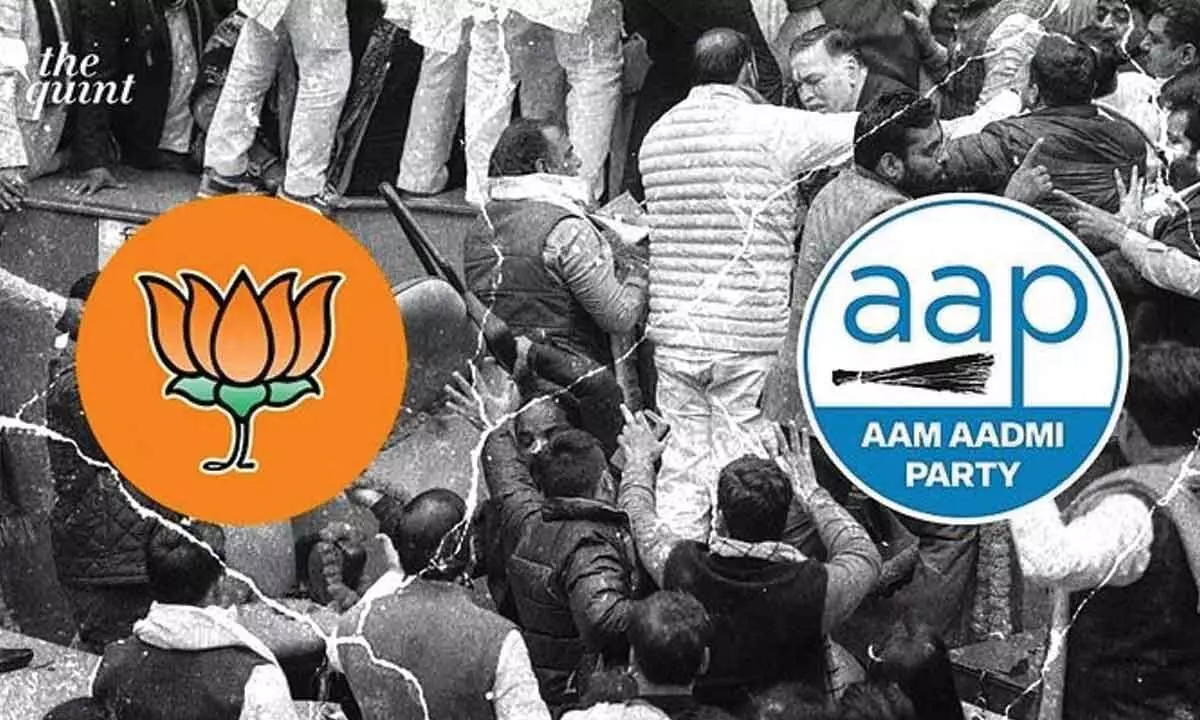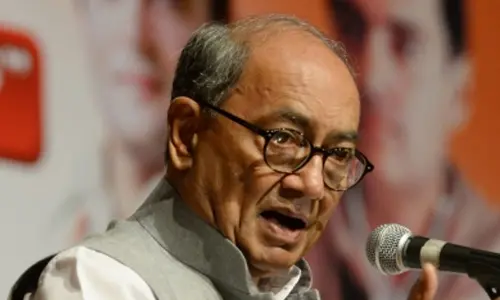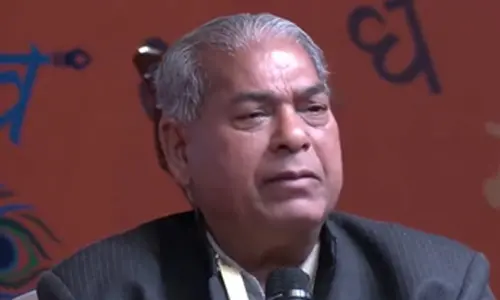New Delhi: Ordinance must pass SC’s ‘cooperative federalism’ test

Over the past few years, since the AAP came to power in Delhi, much political drama has unfolded -- AAP and Centre have invariably locked horns on governance of the national capital. AAP has insisted on having a larger say in the capital’s governance since it represents the will of the people.
New Delhi : Over the past few years, since the Aam Aadmi Party (AAP) came to power in Delhi, much political drama has unfolded -- AAP and Centre have invariably locked horns on governance of the national capital. AAP has insisted on having a larger say in the capital’s governance since it represents the will of the people.
The May 11, Supreme Court judgment ruled that it is ideal to hold that a democratically elected Delhi government should have control over its officers, saying, “a constitutionally entrenched and democratically elected government needs to have control over its administration”.
However, the Centre on Friday evening promulgated an ordinance, effectively nullifying the judgment, allowing lieutenant governor (L-G) to have the final say in matters of transfers and postings of bureaucrats assigned to various departments under purview of the elected Delhi government.
AAP has described the ordinance as an act of breath-taking brazenness and against the spirit of democracy. Wresting control of services through an ordinance route will generate political heat and an aggressive court battle between the Delhi government and Centre is in the making. The Centre’s ordinance has to pass the test against the backdrop of judicial principles and legislative competence.
The Supreme Court -- in T. Venkata Reddy Vs State of Andhra Pradesh (1985) -- ruled that an ordinance is as good as a law and cannot be treated as an executive action/ administrative decision.
If the ordinance is looked through the prism of the May 11, judgment, the first question pops is that has it left a window for the Centre to promulgate an ordinance aligned with it and the second, can the ordinance nullify the judgment?
The apex court May 11 judgment said: “If Parliament enacts a law granting executive power on any subject which is within the domain of NCTD (National Capital Territory of Delhi), the executive power of the Lieutenant Governor shall be modified to the extent, as provided in that law.
“Furthermore, under Section 49 of the GNCTD (Government of National Capital Territory of Delhi) Act, the Lieutenant Governor and the Council of Ministers must comply with the particular directions issued by the President on specific occasions.”
A bench headed by Chief Justice of India D.Y. Chandrachud said, “The Legislative Assembly of NCTD has competence over entries in List II (State List of Seventh Schedule) and List III (Concurrent List), except for the expressly excluded entries of List II”.
The bench -- also comprising justices M.R. Shah, Justice Krishna Murari, Justice Hima Kohli and Justice P.S. Narasimha -- said the executive power of NCTD with respect to entries in List II and List III shall be subject to the executive power expressly conferred upon the Union by the Constitution or by a law enacted by Parliament.
The bench ruled that in a democratic form of government, the real power of administration must reside in the elected arm of the state, subject to the confines of the Constitution.
The bench said: “In addition to the Entries in List I (Union List), Parliament has legislative competence over all matters in List II and List III in relation to NCTD, including the entries which have been kept out of the legislative domain of NCTD by virtue of Article 239AA(3)(a)”.
It added: “The executive power of NCTD with respect to entries in List II and List III shall be subject to the executive power expressly conferred upon the Union by the Constitution or by a law enacted by Parliament.”
Therefore, few paragraphs in judgment establish that the powers of the Delhi Assembly and Delhi government are subject to laws made by Parliament.
If Parliament were to pass a law, to change Delhi’s governance, and get all services under the control of the Centre, such a law might stand the test of legality.
According to legal experts, the government can bring in law to remove the basis of the judgment or remove the defects on any statute.
For example, after the Supreme Court banned ‘Jallikattu’ Bull race and ‘Kambala’ as violative of the Prevention of Cruelty to Animals Act and the Constitution, Tamil Nadu, Maharashtra, and Karnataka brought their own laws to allow these sports, which received the president’s assent. A five-judge constitution bench on May 18, upheld the validity of these state laws.
The Centre has brought an ordinance to set up a permanent authority known as the National Capital Civil Service Authority whose chairperson will be Delhi chief minister along with chief secretary, Delhi, Principal Secretary (Home), Delhi to make recommendations to the Delhi L-G regarding matters concerning transfer posting, vigilance and other incidental matters. However, in case of difference of opinion, the decision of the L-G shall be final.
Therefore, does the ordinance portend a crisis for federalism?
The constitution bench in May 11, judgment said: “In the spirit of cooperative federalism, the Union of India must exercise its powers within the boundaries created by the Constitution. NCTD, having a sui generis federal model, must be allowed to function in the domain charted for it by the Constitution.
The Union and NCTD share a unique federal relationship. It does not mean that NCTD is subsumed in the unit of the Union merely because it is not a State.”
Against the backdrop of observations made by the apex court handing control of services to the Delhi government, the ordinance, after it is challenged, will have to pass the test on cooperative and collaborative federalism as well.
Law passed by a competent legislature is presumed to be valid and constitutional unless held otherwise by a court of law, which is called “presumption of constitutionality”. The courts, using legal principle, interpret a statute passed by Parliament or a state Assembly.
In January 2021, citing the Maratha quota case stay order, the apex court suspended the operation of the three farm laws and in December 2021, the court stayed the operation of the Maharashtra government’s ordinance, seeking to introduce 27 per cent reservation for OBCs in all zilla parishads and panchayat samitis. The Maharashtra government introduced reservation without collecting data on OBCs in every municipal body seat.
From the above discussion, the question which arises is whether the ordinance is consistent with the intent of the Supreme Court May 11, judgment? The real test for the ordinance awaits.
















